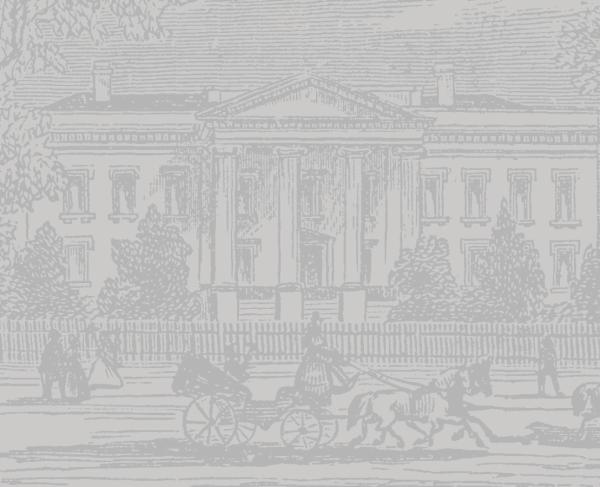1798: Virginia Resolutions and Extracts From The Address To The People

The Virginia Resolutions protested the Alien and Sedition Acts and were part of a key moment of discussion about freedom of the speech and press.
In the House of Delegates
Friday Decr. 21st. 1798.
Resolved, that the General Assembly of Virginia doth unequivocally express a firm resolution to maintain and defend the constitution of the United States, and the Constitution of this state, against every aggression, either foreign or domestic, and that they will support the government of the United States in all measures, warranted by the former.
That this Assembly most solemnly declares a warm attachment to the Union of the States, to maintain which, it pledges all its powers; and that for this end, it is their duty, to watch over and oppose every infraction of those principles, which constitute the only basis of that union, because a faithful observance of them, can alone secure its existence, and the public happiness.
That this Assembly doth explicitly and peremptorily declare, that it views the powers of the federal government, as resulting from the compact to which the states are parties; as limited by the plain sense and intention of the instrument constituting that compact; as no farther valid than they are authorised by the grants enumerated in that compact, and that in case of a deliberate, palpable and dangerous exercise of other powers not granted by the said compact, the states who are parties there-to have the right, and are in duty bound, to interpose for arresting the pro⟨gress⟩ of the evil, and for maintaining within their respective limits, the authorities, rights and liberties appertaining to them.
That the General Assembly doth also express its deep regret that a spirit has in sundry instances, been manifested by the federal government, to enlarge its powers by forced constructions of the constitutional charter which defines them; and that indications have appeared of a design to expound certain general phrases (which having been copied from the very limited grant of powers in the former articles of confederation were the less liable to be misconstrued) so as to destroy the meaning and effect of the particular enumeration, which necessarily explains and limits the general phrases; and so as to consolidate the states by degrees into one sovereignty, the obvious tendency and inevitable consequence of which would be, to transform the present republican system of the United States, into an absolute, or at best a mixed monarchy.
That the General Assembly doth particularly protest against the palpable and alarming infractions of the constitution, in the two late cases of the “alien and sedition acts,” passed at the last session of Congress; the first of which exercises a power no where delegated to the federal government; and which by uniting legislative and judicial powers, to those of executive, subverts the general principles of free government, as well as the particular organization and positive provisions of the federal constitution: and the other of which acts, exercises in like manner a power not delegated by the constitution, but on the contrary expressly and positively forbidden by one of the amendments thereto; a power which more than any other ought to produce universal alarm, because it is levelled against that right of freely examining public characters and measures, and of free communication among the people thereon, which has ever been justly deemed, the only effectual guardian of every other right.
That this State having by its convention which ratified the federal constitution, expressly declared, “that among other essential rights, the liberty of conscience and of the press cannot be cancelled, abridged, restrained or modified by any authority of the United States” and from its extreme anxiety to guard these rights from every possible attack of sophistry or ambition, having with other states recommended an amendment for that purpose, which amendment was in due time annexed to the Constitution, it would mark a reproachful inconsistency and criminal degeneracy, if an indifference were now shewn to the most palpable violation of one of the rights thus declared and secured, and to the establishment of a precedent which may be fatal to the other.
That the good people of this Commonwealth having ever felt and continuing to feel the most sincere affection for their bretheren of the other states, the truest anxiety for establishing and perpetuating the union of all, and the most scrupulous fidelity to that Constitution which is the pledge of mutual friendship, and the instrument of mutual happiness, the General Assembly doth solemnly appeal to the like dispositions of the other States, in confidence that they will concur with this Commonwealth in declaring, as it does hereby declare, that the acts aforesaid are unconstitutional, and that the necessary and proper measures will be taken by each, for cooperating with this State in maintaining unimpaired the authorities, rights, and liberties, reserved to the States respectively, or to the people.
That the Governor be desired to transmit a copy of the foregoing resolutions to the Executive authority of each of the other States, with a request, that the same may be communicated to the Legislature thereof.
And that a copy be furnished to each of the Senators and Representatives, representing this State in the Congress of the United States.
EXTRACTS FROM THE ADDRESS TO THE PEOPLE,
Which Accompanied The Foregoing Resolutions.
Fellow-citizens: Unwilling to shrink from our representative responsibilities, conscious of our motives, but acknowledging your right to supervise our conduct, we invite your serious attention to the emergency which dictated the subjoined resolutions. Whilst we disdain to alarm you by ill-founded jealousies we recommend an investigation guided by the coolness of wisdom, and a decision bottomed on firmness, but tempered with moderation.
It would be perfidious in those intrusted with the GUARDIANSHIP OF THE STATE SOVEREIGNTY, and acting under the solemn obligation of the following oath, — "I do swear that I will support the Constitution of the United States,"— not to warn you of encroachments, which, though clothed with the pretext of necessity, or disguised by arguments of expediency, may yet establish precedents which may ultimately devote a generous and unsuspicious people to all the consequences of usurped power.
Encroachments spring from a government WHOSE ORGANIZATION CANNOT BE MAINTAINED WITHOUT THE COOPERATION OF THE STATES, furnish the strongest excitements upon the state legislatures to watchfulness, and impose upon them the strongest obligation TO PRESERVE UNIMPAIRED THE LINE OF PARTITION.
The acquiescence of the states, under infractions of the federal compact, would either beget a speedy consolidation, by precipitating the state governments into impotency and contempt, or prepare the way for a revolution, by a repetition of these infractions until the people are aroused to appear in the majesty of their strength. It is to avoid these calamities that we exhibit to the people the momentous question, whether the Constitution of the United States shall yield to a construction which defies every restraint, and overwhelms the best hopes of republicanism.
Exhortations to disregard domestic usurpation, until foreign danger shall have passed, is an artifice which may be forever used; because the possessors of power, who are the advocates for its extension, can ever create national embarrassments, to be successively employed to soothe the people into sleep, whilst that power is swelling, silently, secretly, and fatally. Of the same character are insinuations of a foreign influence which seize upon a laudable enthusiasm against danger from abroad, and distort it by an unnatural application, so as to blind your eyes against danger at home.
The Sedition Act present a scene which was never expected by the early friends of the Constitution. It was then admitted that the state sovereignties were only diminished by power specifically enumerated, or necessary to carry the specified powers into effect. Now, federal authority is deduced from implication, and from the existence of state law, it is inferred that Congress possess a similar power of legislation, whence Congress will be endowed with a power of legislation in all cases whatsoever, and the states will be stripped over right reserved by the concurrent claims of a paramount legislature.
The Sedition Act is the offspring of these tremendous pretensions, which inflict a death-wound on the sovereignty of the states.
For the honor of American understanding, we will not believe that the people have been allured into the adoption of the Constitution by an affectation of defining powers, whilst the preamble would admit a construction which would erect the will of Congress into a power paramount in all cases, and therefore limited in none. On the contrary, it is evident that the objects for which the Constitution was formed were deemed attainable only by a particular enumeration and specification of each power granted to the federal government; reserving all others to the people, or to the states. And yet it is in vain we search for any specified power embracing the right of legislation against the freedom of the press.
Had the states been despoiled of their sovereignty by the generality of the preamble, and had the federal government been endowed with whatever they should judge to be instrumental towards the union, justice, tranquility, common defence, general welfare, and the preservation of liberty, nothing could have been more frivolous than an enumeration of powers.
All the preceding arguments, arising from a deficiency of constitutional power in Congress, apply to the Alien Act; and this act is liable to other objections peculiar to itself. If a suspicion that aliens are dangerous, constitutes the justification of that power exercised over them Congress, then a similar suspicion will justify the exercise of a similar power over natives; because there is nothing in the Constitution distinguishing between the power of a state to permit the residence of natives and aliens. It is, therefore, a right originally possessed, and never surrendered, by the respective states, and which is rendered dear and valuable to Virginia, because it is assailed through the bosom of the Constitution, and because her peculiar situation renders the easy admission of artisans and laborers an interest of vast importance.
But this bill contains other features, still more alarming and dangerous. It dispenses with the trial by jury; it violates the judicial system; it confounds legislative, executive, and judicial powers; it punishes without trial; and it bestow upon the President despotic power over a numerous class of men. Are such measures consistent with our constitutional principles? And will an accumulation of power so extensive in the hands of the executive, over aliens, secure to natives the blessings of republican liberty?
If measures can mould governments, and if an uncontrolled power of construction is surrendered to those who administer them, their progress may be easily foreseen, and their end easily foretold. A lover of monarchy, who opens the treasures of corruption by distributing emolument among devoted partisans, may at the same time be approaching his object and deluding the people with professions of republicanism. He may confound monarchy and republicanism, by the art of definition. He may varnish over the dexterity which ambition never fails to display, with the pliancy of language, the seduction of expediency, or the prejudices of the times, and he may come at length to avow, that so extensive a territory as that of the United States can only be governed by the energies of monarchy; that it cannot be defended except by standing armies; and that it cannot be united, except by consolidation.
Measures have already been adopted which may lead to these consequences. They consist —
In fiscal systems and arrangements, which keep a host of commercial and wealthy individuals imbodied, and obedient to the mandates of the treasury; —
In armies and navies, which will, on the one hand, enlist the tendency of man to pay homage to his fellow-creature who can feed or honor him; and on the other, employ the principle of fear, by punishing imaginary insurrections, under the pretext of preventive justice; —
In swarms of officers, civil and military, who can inculcate political tenets, tending to consolidation and monarchy, both by indulgence and severities, and can act as spies over the free exercise of human reason; —
In restraining the freedom of the press, and investing the executive with legislative, executive, and judicial powers, over a numerous body of men; —
And that we may shorten the catalogue, in establishing, by successive precedents, such a mode of construing the Constitution as will rapidly remove every restraint upon federal power.
Let history be consulted; let the man of experience reflect; nay, let the artificers of monarchy be asked what further materials they can need for building up their favorite system.
These are solemn but painful truths; and yet we recommend it to you not to forget the possibility of danger from without, although danger threatens us from within. Usurpation is indeed dreadful; but against foreign invasion, if that should happen, let us rise with hearts and hands united, and repel the attack with the zeal of freemen who will strengthen their title to examine and correct domestic measures, by having defended their country against foreign aggression.
Pledged as we are, fellow-citizens, to these sacred engagements, we yet humbly, fervently implore the Almighty Disposer of events to avert from our land war and usurpation, the scourges of mankind; to permit our fields to be cultivated in peace; to instill into nations the love of friendly intercourse; to suffer our youth to be educated in virtue, and to preserve our morality from the pollution invariably incident to habits of war; to prevent the laborer and husbandman from being harassed by taxes and imposts; to remove from ambition the means of disturbing the commonwealth; to annihilate all pretext for power afford by war; to maintain the Constitution; and to bless our nation with tranquility, under whose benign influence we may reach the summit of happiness and glory to which we are destined by nature and nature's God.
Sources:
- “Virginia Resolutions, 21 December 1798,” Founders Online, National Archives, https://founders.archives.gov/documents/Madison/01-17-02-0128.
- Madison, J. & United States Constitutional Convention, Elliot, J., ed. (1836) The debates in the several state conventions on the adoption of the federal Constitution, as recommended by the general convention at Philadelphia, in . Together with the journal of the Federal convention, Luther Martin's letter, Yate's minutes, Congressional opinions, Virginia and Kentucky resolutions of '98-'99, and other illustrations of the Constitution. Philadelphia, J.B. Lippincott & co.; Washington, Taylor & Maury. Pages 529-532. [Pdf] Retrieved from the Library of Congress, https://www.loc.gov/item/17007172/.

